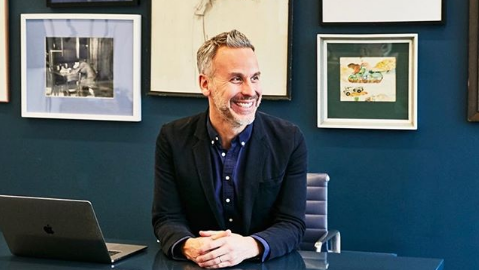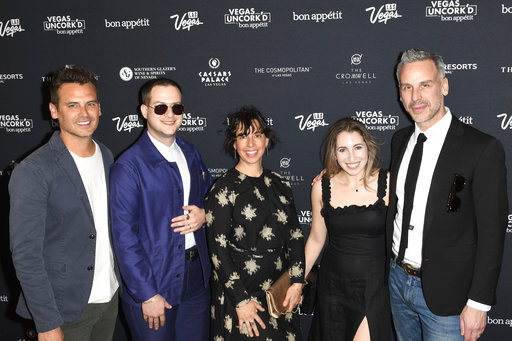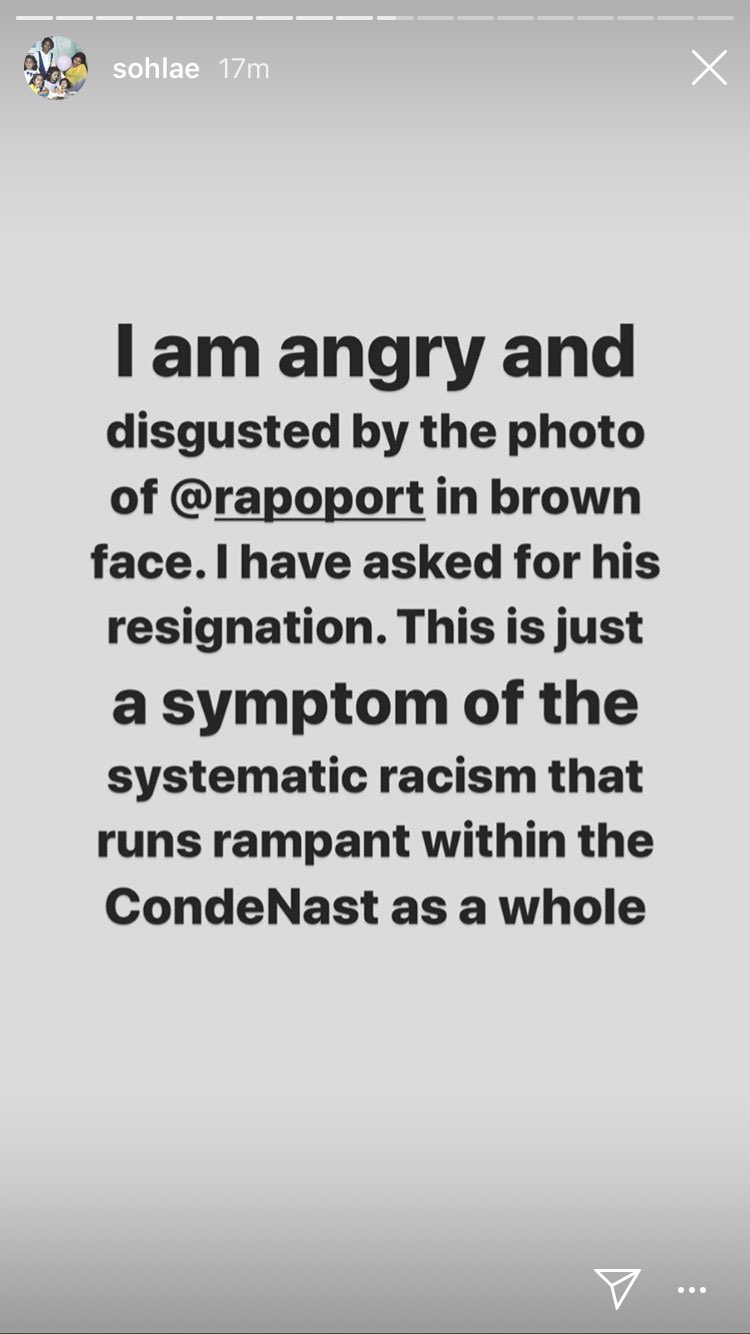
Adam Rapoport. /@rapoport Instagram account
Adam Rapoport. /@rapoport Instagram account
The editor-in-chief of U.S. food magazine Bon Appétit Adam Rapoport has resigned after an old photo of him dressed as a Puerto Rican resurfaced online, triggering anger and accusations of a culture of discrimination at the publication.
Rapoport on Monday night announced in an Instagram post that he is stepping down to "reflect on the work that I need to do as a human being and to allow Bon Appétit to get to a better place."
"I've not championed an inclusive vision," he added.
Rapoport has been at the helm of Bon Appétit since 2010 and is credited with steering the magazine into the digital world and helping turn it into a trendy outlet that speaks to a younger audience. The magazine is huge on YouTube with six million subscribers; its videos effortlessly go viral and bigger-than-life hosts have reached online celebrity status, attracting a fervent fandom and spawning memes.
But the shake-up seems to have been cosmetic and only skin deep, and Rapoport has found himself in hot waters since early June for past racial blunders and discriminatory practices.
His attempts to weigh in on the social justice protests in the U.S. backfired and voices from inside and outside the magazine have, in recent days, called him out for being racially insensitive.

(From left to right) Andrew Knowlton, Amiel Stanek, Carla Lalli Music, Rachel Karten and Adam Rapoport at the Grand Tasting during the 12th Annual Vegas Uncork'd by Bon Appétit at Garden of the Gods Pool Oasis at Caesars Palace, May 11, 2018. /AP
(From left to right) Andrew Knowlton, Amiel Stanek, Carla Lalli Music, Rachel Karten and Adam Rapoport at the Grand Tasting during the 12th Annual Vegas Uncork'd by Bon Appétit at Garden of the Gods Pool Oasis at Caesars Palace, May 11, 2018. /AP
What's the background?
In a piece titled "Food Has Always Been Political" published on May 31, Rapoport detailed how the magazine was covering the protests in the wake of the police killing of George Floyd.
"As a food brand, we're often talking about recipes, cooking techniques, and emerging restaurants. But we also understand that food is inherently political, and there's no getting around that," he wrote. He also admitted that "we still have work to do" as the team reckons "with our blind spots when it comes to race."
Read more: U.S. restaurants support race protests as violence adds to pandemic woes
But days later, on June 2, food writer Korsha Wilson took to Twitter, accusing Rapoport of "empty" talk. "I personally know Black women & women of color who were gaslit, fired and their ideas used by y'all," she said.
Then, Puerto Rican food columnist Illyanna Maisonet accused the publication of double-standards. She shared on Instagram how Bon Appétit shot down her pitch about rice fritters made by Afro-Puerto Ricans before the magazine went on to promise to tackle "more of the racial and political issues at the core of the food world," as Rapoport had written in his blog.
Maisonet posted screenshots of a series of private back-and-forth messages between her and Rapoport, during which he defended the rejection by insinuating that her food story was not trendy enough.
"At BA [ Bon Appétit], readers expect stories to reflect what's happening 'right now' in the food world. And that's *generally* what we try to do," he wrote, suggesting tweaking the pitch for a "way in."
Things got heated on Monday after food and drinks writer Tammie Teclemariam waded into the fray, sharing a 2013 Instagram photo showing Rapoport and his wife Simone Shubuck, who posted the image but has since taken it down, dressed in stereotypical Puerto Rican costumes.
Rapoport was sporting a white tank top with an open Yankees jersey over it, and accessorized the look with a chain and a Bronx baseball cap. The photograph was hashtagged #boricua, a term Puerto Ricans use to refer to themselves and derives from the name the indigenous population had given the island, Borinquén.
"I do not know why Adam Rapoport simply doesn't write about Puerto Rican food for @bonappetit himself!!!" wrote Teclemariam in reference to the incident between Maisonet and the magazine's top editor.
The photo sparked a firestorm of criticism from former and current Bon Appétit staff, with many coming out to speak about discriminatory practices and pay inequity within the magazine.
Who said what?
Cookbook author Priya Krishna, who contributes to Bon Appétit, tweeted "This is f***ed up, plain and simple." Senior food editor Molly Baz called the photo "disgusting," while Brad Leone, who hosts the show It's Alive about fermented food, expressed his "disappointment in today's news."
But perhaps the most outspoken voice was assistant editor Sohla El-Waylly who took to Instagram, calling for Rapoport's resignation. She went on to say that she's underpaid despite her 15 years of experience and was hired to "assist mostly white editors with significantly less experience."

Sohla El-Waylly (L) poses at the Bon Appétit test kitchen. /@sohlae Instagram account
Sohla El-Waylly (L) poses at the Bon Appétit test kitchen. /@sohlae Instagram account
El-Waylly dropped a bombshell, revealing that people of color do not get money for making online content, unlike their white colleagues.
"I've been pushed in front of video as a display of diversity. In reality, currently only white editors are paid for their video appearances. None of the people of color have been compensated."
The allegations of unfair pay, however, were denied by Condé Nast, which owns Bon Appétit.
"We have a zero-tolerance policy toward discrimination and harassment in any forms. Consistent with that, we go to great lengths to ensure that employees are paid fairly, in accordance with their roles and experience, across the entire company."
Former photographer at the magazine, Alex Lau, said one of the reasons he exited the company was "that white leadership refused to make changes that my BIPOC [Black, Indigenous, and People of Color] coworkers and I constantly pushed for."
"This is a larger issue than that picture (which is irrefutably terrible and sad), this is a systemic problem that needs to be addressed now," he tweeted.

A screenshot of one of many Instagram stories by Sohla El-Waylly weighing in on an old Halloween photo of editor-in-chief Adam Rapoport that resurfaced online as well as her experience with discrimination at Bon Appétit.
A screenshot of one of many Instagram stories by Sohla El-Waylly weighing in on an old Halloween photo of editor-in-chief Adam Rapoport that resurfaced online as well as her experience with discrimination at Bon Appétit.
Many of the test kitchen staff at Bon Appétit have come out in support of their colleagues, threatening not to take part in any videos until all grievances are properly addressed.
In his resignation post, Rapoport tackled the criticism, calling the controversial photo an "extremely ill-conceived Halloween costume from 16 years" and admitted to "blind spots as an editor."
Not a single case
Bon Appétit is not the only publication courting controversy over allegations of discrimination as recent protests have inspired more people in the media industry to stand up and speak up against racism and unfair treatment.
Also on Monday, Christene Barberich, co-founder and editor-in-chief of Refinery29, a female-focused lifestyle website, stood down over staff accusations of toxic work culture and tokenizing women of color.
A day earlier, the editorial page director of the New York Times James Bennet stepped down after giving the go-ahead to an inflammatory op-ed titled "Send In the Troops" by Republican Senator Tom Cotton, in which he called for a military response to the demonstrations sweeping the country.
The top editor of the Philadelphia Inquirer, Stan Wischnowski, also called it quits last week over the headline of an editorial "Buildings Matter, Too" which likened property damage to the the death of African Americans.